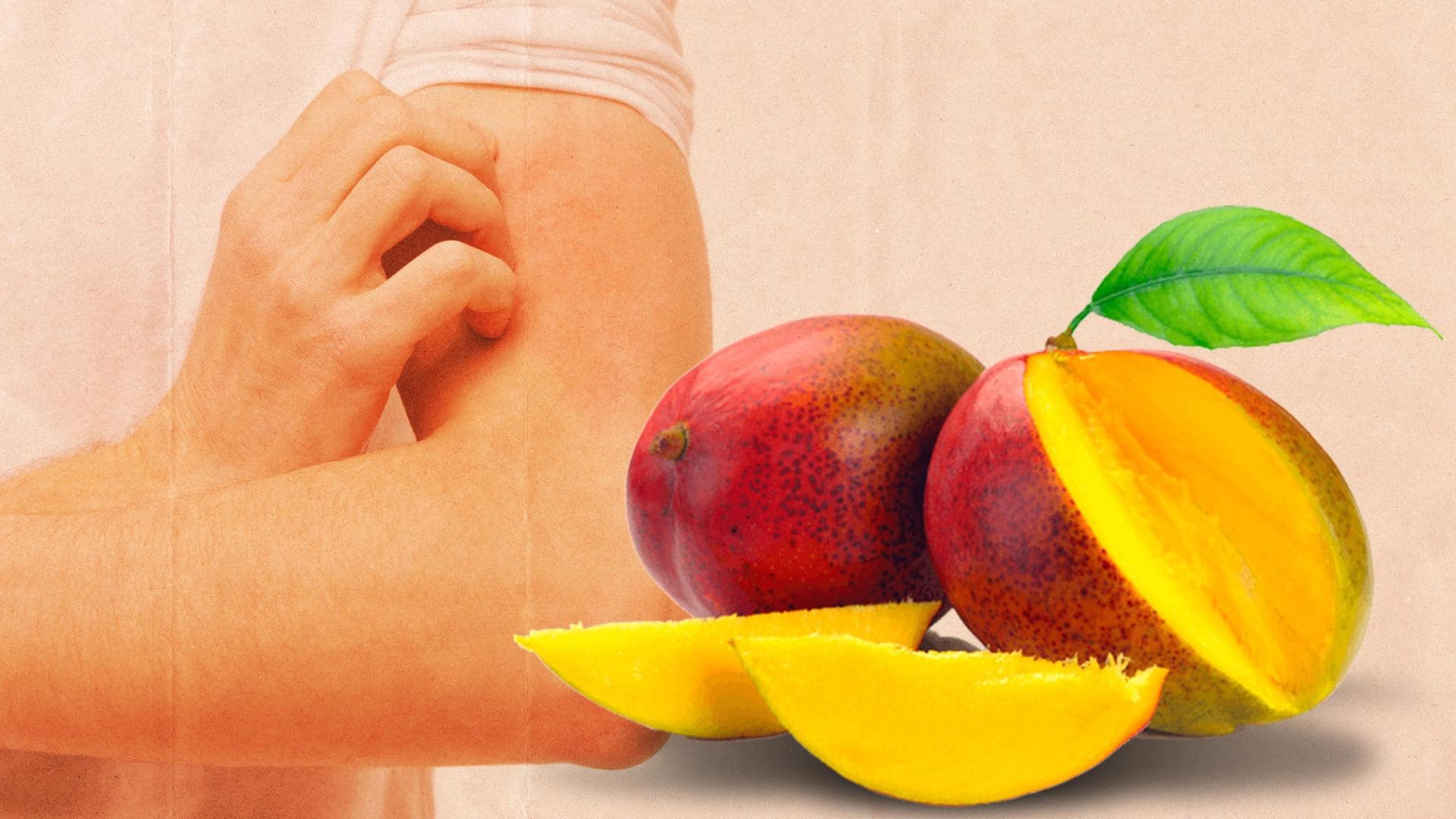
Suffering from mango allergy? Know that you are not alone
What's the story
Love the juicy, sweet flavor of mangoes? They are delicious whether you eat them plain or add them to fruit salads, chutneys, or pickles. But did you know that some people can have a bad reaction to mangoes? If you are one of them, it's important to know that you are not alone. Curious to learn more? Keep reading.
Context
Here's what our expert says
Mango is a tropical fruit popular for its sweet and tangy pulp. Allergies to mangoes develop due to an allergy to an oil present in the sap, skin, stems, and leaves of mangoes called urushiol. Urushiol is found in other plants such as poison ivy, poison oak, mugwort, and birch pollen. People allergic to mangoes can also be allergic to cashews, pistachios, and peanuts.
Symptoms
There are two types of allergic reactions to mangoes
The first is a delayed one that can show up days later, causing a rash around the mouth - known as mango mouth. The second type is immediate, happening within 24 hours after eating mango. It can range from mild itching to a serious and rare condition called anaphylaxis. Anaphylaxis is life-threatening but luckily very uncommon, with only a few reported cases.
Delayed
Symptoms of a delayed reaction to mango
If you have a delayed reaction to mango, you might experience skin problems like redness, flaky skin, or blisters from a rash called contact dermatitis. It can also make you feel itchy, and your eyes might swell up. Interestingly, it's usually the mango peel that causes these issues. For some people, peeling off the skin before serving can help avoid these symptoms.
Immediate
Symptoms of an immediate reaction to mango
If you have an immediate allergic reaction to mango, it can show up in different ways. You might feel itchy, and tingly, and notice swelling in your mouth, lips, throat, or face. Your throat may also feel tight or swollen, and you might start wheezing. Hives can appear too. These reactions can range from mild to severe.
Causes
The main reason behind this allergy?
Mangoes have an oil called urushiol that can trigger allergies. Interestingly, the rash caused by mangoes is more common when you touch the plant rather than when you eat the fruit. It's uncommon, but some people can suddenly develop an allergy later in life, especially if it runs in the family. Pay attention to any reactions and consult a healthcare professional if necessary.
Treatment
What are the available treatment options?
If you have itchiness from minor reactions, you can try using over-the-counter antihistamines for relief. For more severe rashes, options include anti-itch creams or prescription-strength corticosteroid creams to reduce discomfort and swelling. In serious cases or if you are at risk of a strong allergic reaction, your healthcare provider may give you an epinephrine auto-injector, which can quickly stop the allergic response.